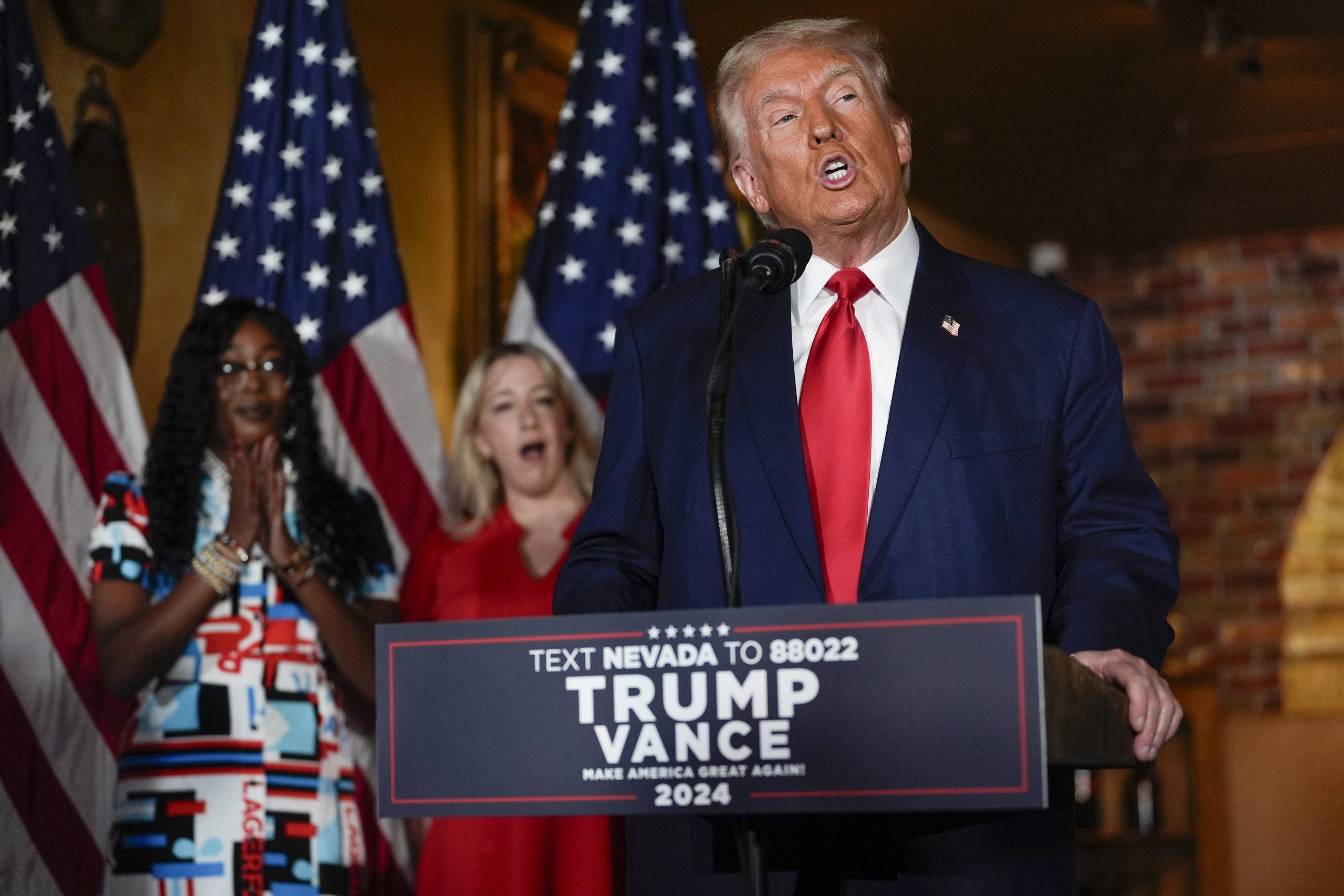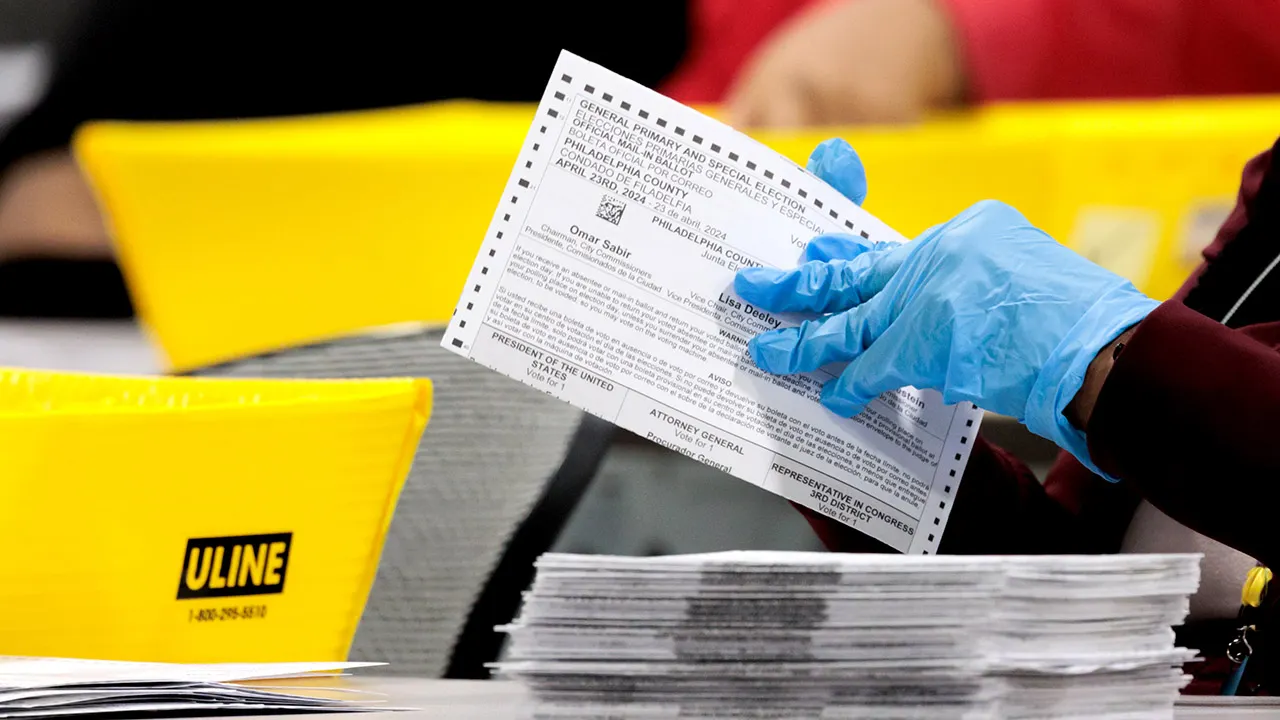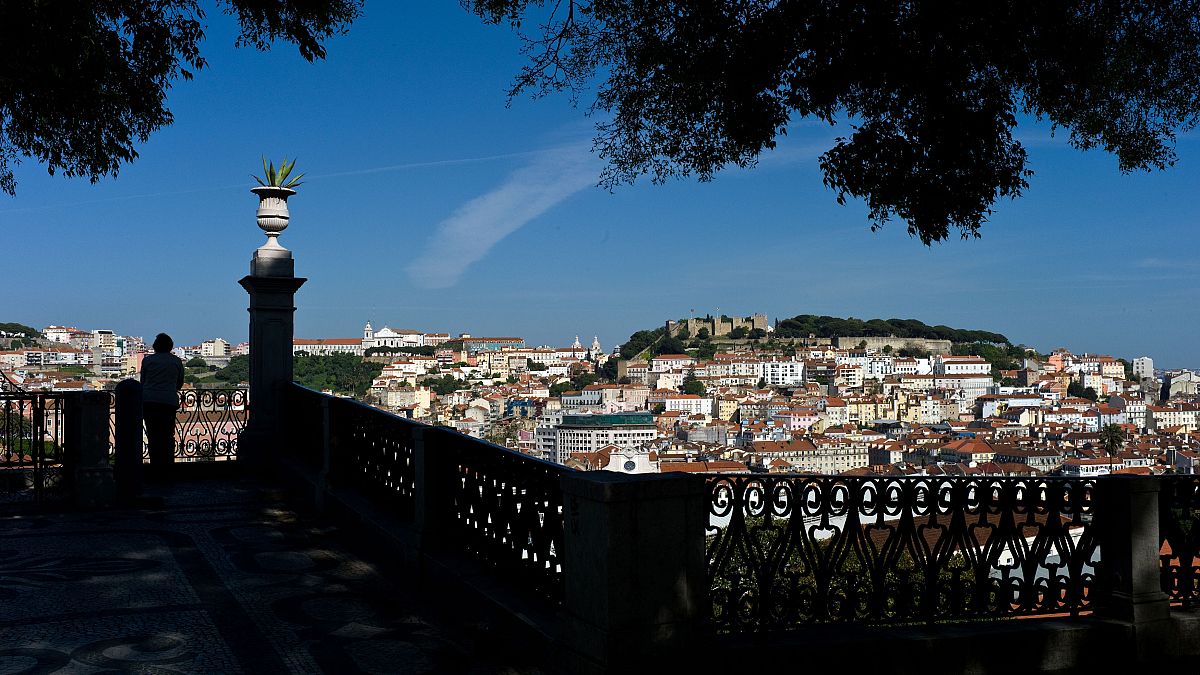World
Putin hits Ukraine with 200 missiles, drones in massive strikes amid invasion on Russian homeland
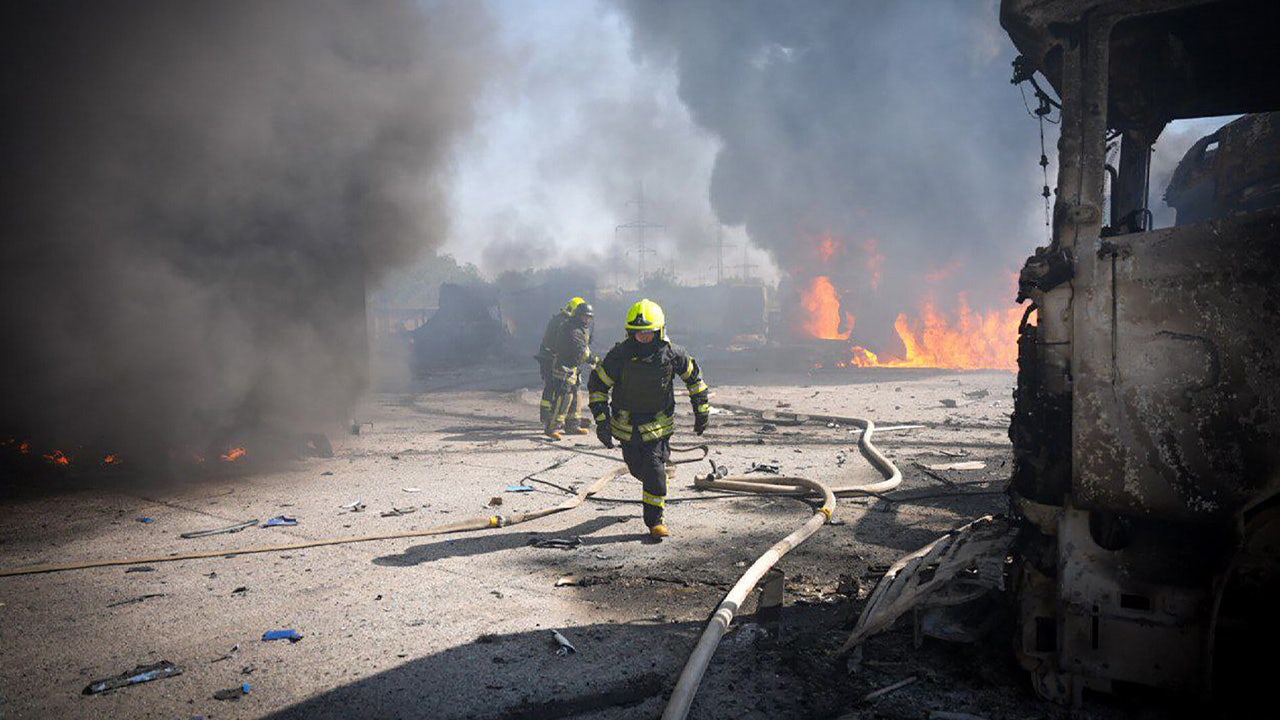
Russia launched one of its heaviest strikes against Ukraine on Monday, firing more than 200 missiles and drones at civilian and energy targets across the country, confirmed Ukrainian President Volodymy Zelenskyy.
In a post to X, Zelenskyy said more than 100 varying types of missiles and another 100 Iranian-supplied Shahed drones were fired in a series of attacks, prompting the Ukrainian leader to once again call on his Western allies to drop all restrictions on long-range defensive strikes.
Zelenskyy did not confirm where the strikes were likely fired from, but he again argued that Ukraine needs to be able to better defend itself from Russia’s constant barrage of aerial attacks.
Russia unleashed one of the biggest onslaughts of the war to strike Ukraine amid Russian President Vladimir Putin’s fury over Kyiv’s invasion of his territory in Kursk region. This strike was in Odesa. (East2West)
ON UKRAINIAN INDEPENDENCE DAY, OVER 100 POWS SWAPPED WITH RUSSIA
“It is crucial that our partners uphold the commitments we’ve made together, in particular regarding air defense systems, missiles for them,” he said. “We must finally unite in our efforts to shoot down Russian missiles and drones.”
Zelenskyy said targets were hit in Ukraine’s most western regions, including Volyn and Lviv, which neighbor Poland. Cities in Ukraine’s western-central regions were also hit in the Ivano-Frankivsk, Vinnytsia, Khmelnytskyi and Ternopil regions.
Two of Ukraine’s most populated cities were also struck, according to images posted by Reuters, including Kyiv and Odesa.
Five people were reportedly killed and 30 others were injured, spokesperson for the State Emergency Service, Oleksandr Khorunzhy, said in a televised address, according to the Kyiv Independent.
“Across Ukraine, we could do much more to protect lives if the aviation of our European neighbors operated in concert with our F-16s and air defense systems,” Zelenskyy said. “If such unity has proven effective in the Middle East, it must work in Europe too.
“Life holds the same value everywhere,” he added.
MOSCOW TARGETED WITH LARGEST DRONE ATTACK OF WAR WITH UKRAINE: RUSSIAN OFFICIALS
The Russian Ministry of Defense on Monday claimed that storage facilities housing “aviation weapons” given to Ukraine from its Western allies in the Kyiv and Dnepropetrovsk regions were also hit, though Fox News Digital could not independently verify these claims.
“All designated targets were hit, as a result, there were power outages, and rail transportation of weapons and ammunition to the line of combat contact was disrupted,” the Russian ministry claimed in a post on Telegram Monday.
Zelenskyy has repeatedly called on allies to help Ukraine strengthen its air defense systems through F-16s, Patriot batteries and lifting restrictions on long-range strike permissions.
Last month, Zelenskyy said Ukraine needs more F-16s and some 25 Patriot battery systems to adequately defend its skies.

People take cover inside a metro station during a Russian missile and drone strike, amid Russia’s attack on Ukraine, in Kyiv, Ukraine, on Aug. 26, 2024. (REUTERS/Yurii Kovalenko)
The U.S. along with the Netherlands, Germany, and Romania announced last month that they would send another four Patriot systems to Ukraine and Italy would send a SAMP-T system – both of which provide defense against cruise and ballistic missiles as well as combat aircraft, though the Patriot system has superior coverage at greater distances.
It is unclear how many Patriot or SAMP-T systems Ukraine currently has, but Zelenskyy said earlier this month that if allied nations lifted their long-range strike bans, Kyiv “would not need to physically enter [Russia] particularly the Kursk region to protect our Ukrainian citizens in the border communities and eliminate Russia’s potential for aggression.”
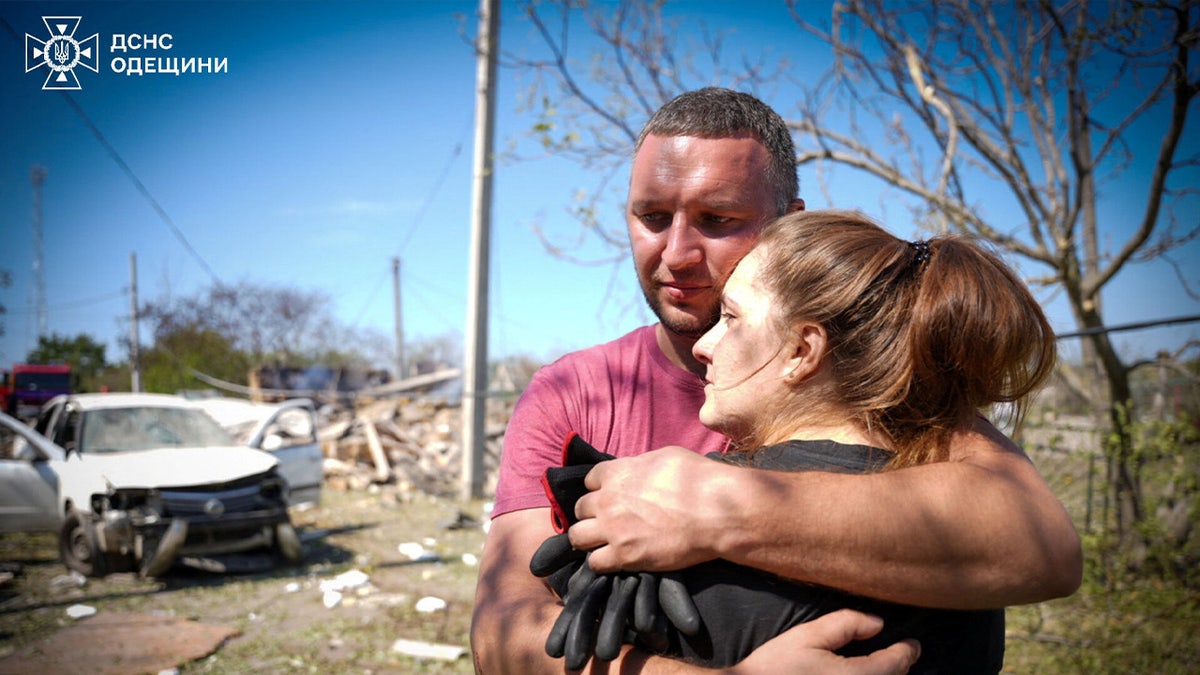
Local residents embrace each other at the site of a Russian missile strike, amid Russia’s attack on Ukraine, in the Odesa region, on Aug. 26, 2024. (Press service of the State Emergency Service of Ukraine in Odesa region/Handout via REUTERS)
Zelenskyy has said his Kursk operation is intended to establish a “buffer zone” to staunch Russia’s attacks against Ukraine’s northern regions.
“Putin can only act within the limits the world sets for him,” Zelenskyy said Monday. “Weakness and inadequate responses fuel terror.
“America, Britain, France, and our other partners have the power to help us stop this terror. The time for decisive action is now,” he added.

World
Aby Media, Globo Partner on Ivory Coast Adaptations of Hit Brazilian Scripted Titles: Will Present Lineup at MIP Africa (EXCLUSIVE)

Upstart Ivorian production company Aby Media, founded by Bernard and Kimberley Azria and Brazilian powerhouse Globo, have unveiled a new production-distribution agreement for a slate of popular Globo scripted titles. Under the new deal, Aby Media will produce local versions of several Globo shows and distribute their original versions in the territory.
Both Aby Media and Globo will be at this year’s MIP Africa in Cape Town, held from Sept. 2-4, where they will showcase their slate of formats.
Among the shows set to be adapted or distributed by Aby Media in Africa are “Pantanal,” “Total Dreamer,” “Shades of Sin” and “The Other Side of Paradise.” By producing local versions of the show, the partnership is intended to satisfy increasingly diverse demands from the audience.
“Having distributed Globo finished content in Africa for almost three decades, I’m particularly happy and proud to initiate with Globo this unprecedented landmark venture,” Bernard Azria explained of the new deal. “This partnership underscores our mutual commitment to excellence in storytelling and represents a significant step forward in bringing high-quality, engaging content to African audiences.”
Kimberley Azria added, “Our alliance with Globo highlights the importance of creativity and adaptation in today’s media industry. Together, we are dedicated to producing content that resonates with local viewers while upholding the highest production standards.”
Aby Media works with and develops local talent by producing both scripted and unscripted content meant to bridge cultural divides. It’s focused on telling diverse stories that can appeal to global audiences. Its current pipeline includes a local adaptation of SIC Portugal’s “Lucky Break,” a drama series about a fictional football club titled “Legends,” the politically charged missing person drama “Echoes” and a contemporary music-fueled series titled “Afrobeats.”
On the importance of these kinds of global partnerships, Globo Content Distribution and Partnership boss, Fábio Mauro said: “This partnership reinforces our sales strategy for formats, as was the case with ‘Brazil Avenue,’ which will be adapted in Turkey. We believe in the strength of our productions, in the universality of our plots, and with the sale of formats, it will be possible to bring Globo’s DNA and our Brazilianness and combine it with local production.”
Angela Colla, Head of International Business and Coproductions at Globo, added: “This initiative comes at a pivotal moment in today’s dynamic media landscape. As the demand for new, captivating shows intensifies, there is a simultaneous need to mitigate risks and optimize resources and adapting international scripted formats is, therefore, a strategic business and creative approach to navigate these complexities.”
World
Who is Telegram CEO Pavel Durov? What to know about his arrest in France

Telegram co-founder Pavel Durov was detained at the Paris-Le Bourget airport on Saturday, after arriving by a private plane from Baku, Azerbaijan.
He is accused of having failed to moderate criminal activity on the platform.
Here is what we know about Durov, Telegram and the case:
Who is Durov and why was he detained?
Russian-born Durov, 39, co-founded what became one of Russia’s most popular social media networks, VKontakte, in his native St Petersburg, in 2007. He has been compared with Facebook co-founder Mark Zuckerberg.
In 2013, he grabbed global headlines by publicly offering a job to whistleblower and former National Security Agency contractor Edward Snowden.
In an interview with US journalist Tucker Carlson earlier this year, Durov claimed that he was under pressure to give Russian authorities access to data from accounts of Ukrainian pro-democracy activists in 2014 — and that he refused to do so.
As the Russian government tightened its grip on the internet and President Vladimir Putin’s allies started to take control of VKontakte, Durov sold his stake in the platform in 2014 and fled the country.
He then shifted his focus to Telegram, an app he co-founded with his brother Nikolai when he was 28.
Durov has been living in Dubai and is a citizen of the United Arab Emirates and France, according to Telegram. It is unclear whether he has given up his Russian citizenship.
Business magazine Forbes estimates his wealth at $15.5bn, as of Sunday morning.
Durov has maintained a hands-off stance on moderation, positioning the app as private and censorship. Nonetheless, some experts have cautioned that this approach has led to Telegram becoming a hotspot for illicit activity and extremism.
According to a report by the AFP news agency, he was detained “over offences alleged to have been conducted on Telegram, ranging from fraud, to drug trafficking, cyberbullying and organised crime, including promoting terrorism and fraud.”
While the European Union and the United States have fined other social media platforms for violations their rules and regulations, and their lawmakers have hauled up leaders of digital firms for public hearings, they are not known to have arrested major tech leaders.
In 2016, a senior Facebook executive was arrested in Brazil after the company didn’t give information from WhatsApp related to a drug trafficking investigation. The parent company of Facebook, which was renamed Meta in 2021, owns WhatsApp.
What is Telegram?
Launched in August 2013, Telegram is a cloud-based messaging app. The platform allows users to send messages, photos and large files as well as create groups for “up to 200,000 people or channels for broadcasting to unlimited audiences”.
These features, coupled with the app’s minimal moderation, made it an ideal venue for individuals and groups banned from other platforms such as Twitter and Facebook.
Since its creation, the platform has surged in popularity; it now has nearly one billion active users and has emerged as an important communication tool in conflict zones, including the Russia-Ukraine war.
The Telegram development team is currently based in Dubai, United Arab Emirates.
⚖️ Telegram abides by EU laws, including the Digital Services Act — its moderation is within industry standards and constantly improving.
✈️ Telegram’s CEO Pavel Durov has nothing to hide and travels frequently in Europe.
😵💫 It is absurd to claim that a platform or its owner…
— Telegram Messenger (@telegram) August 25, 2024
According to a report by Statista, Telegram is the third most downloaded messenger app globally following WhatsApp and Snapchat.
In 2023, India, Russia, and the US were the app’s top markets based on download figures. In 2021, it was the most downloaded app worldwide with one billion downloads.
Telegram says that Durov “supports Telegram financially and ideologically”. The platform specifically stays away from “politically motivated censorship”, however, it specifies that it does block “terrorist bots and channels”.
The platform makes money through revenue from advertising and a premium subscription programme launched two years ago.
“We are hoping to become profitable next year, if not this year,” Durov told the Financial Times in March.
“The main reason why we started to monetise is because we wanted to remain independent,” he said. “Generally speaking, we see value in [an IPO] as a means to democratise access to Telegram’s value.”

How has Russia responded to Durov’s arrest?
The relationship between Russia and Durov has been fraught with tension. After Durov left the country, Russia began blocking Telegram in 2018 when the app refused to provide state security services with access to users’ encrypted messages. The ban was lifted in 2020, though the app — like other online platforms in Russia — faces censorship and government scrutiny.
However, after the entrepreneur’s arrest, Russia was quick to respond, and its embassy in France demanded consular access to Durov and demanded that he have access to his rights.
Mikhail Ulyanov, Russia’s permanent representative to the United Nations in Vienna, accused France of acting as a “totalitarian” society — while also calling Durov “naive” for believing in Western claims to defend the freedom of speech.
“Some naive persons still don’t understand that if they play more or less visible role in international information space it is not safe for them to visit countries which move towards much more totalitarian societies,” Ulyanov wrote on X.
According to Ben Aris, Russia watcher and editor of the agency bne IntelliNews, Durov was flying from Azerbaijan where Putin has been for the last few days.
“The talk was that he was there wanting to lobby Putin in order to prevent having Telegram blocked or turned off inside Russia,” Aris told Al Jazeera.

Separately, former Russian President Dmitry Medvedev on Sunday wrote on his Telegram channel: “He thought his biggest problems were in Russia and left … he wanted to be a brilliant ‘citizen of the world’, living well without a homeland.”
“He miscalculated. To our common enemies, he is still Russian – unpredictable and dangerous, of different blood.”
What about other reactions to Durov’s arrest?
Elon Musk, the owner of X, posted #FreePavel on the platform.
“It’s 2030 in Europe and you are being executed for liking a meme,” he added.
POV: It’s 2030 in Europe and you’re being executed for liking a meme https://t.co/OkZ6YS3u2P
— Elon Musk (@elonmusk) August 24, 2024
“Durov’s arrest, aside from being incredibly unjust based on the current charges (it’s clear that Durov isn’t involved in terrorism or arms trafficking), is also a significant blow to freedom of speech,” Georgy Alburov, a Russian political activist with the late opposition leader Alexey Navalny’s Anti-Corruption Foundation, said on X.
“Freedom for Pavel Durov,” he added.
Edward Snowden called the arrest “an assault on the basic human rights of speech and association”.
The arrest of @Durov is an assault on the basic human rights of speech and association. I am surprised and deeply saddened that Macron has descended to the level of taking hostages as a means for gaining access to private communications. It lowers not only France, but the world.
— Edward Snowden (@Snowden) August 25, 2024
Former Fox News host Tucker Carlson also hit out at the French government.
Pavel Durov left Russia when the government tried to control his social media company, Telegram. But in the end, it wasn’t Putin who arrested him for allowing the public to exercise free speech. It was a western country, a Biden administration ally and enthusiastic NATO member,… https://t.co/F83E9GbNHC
— Tucker Carlson (@TuckerCarlson) August 24, 2024
Former US presidential candidate Robert F Kennedy Jr, who dropped out of the race last week to endorse Donald Trump for the November election, also backed Durov in a post on X.
France just arrested Pavel Durov, founder & CEO of the encrypted, uncensored Telegram platform. The need to protect free speech has never been more urgent.
— Robert F. Kennedy Jr (@RobertKennedyJr) August 25, 2024
World
Ukraine counts on new long-range weapon to bypass Western restrictions and hit deep into Russia

KYIV, Ukraine (AP) — Ukraine says it has a new homegrown long-range weapon that will allow it to strike deep into Russia without asking permission from allies.
With the characteristics of a missile and a drone, the “Palianytsia” was created due to urgent necessity, Ukrainian officials said, as Russia has dominated the skies since the outbreak of the war in February 2022.
President Volodymyr Zelenskyy confirmed on Saturday the existence of the Palianytsia, a type of Ukrainian bread and a word so notoriously difficult to pronounce correctly that it was used to unmask suspected spies early in the war. Zelenskyy called it “a new class” of weapon.
Saturday, which marked Ukrain’es 33rd anniversary of independence from the former Soviet Union, also saw the first use of the new weapon, targeting a Russian military installation in the occupied territory, officials said, without providing details.
A Ukrainian military video hinted that its range is up to 700 kilometers (430 miles) — on par with the U.S.-supplied ATACMS. It showed a map with various airfields, including Russia’s Savasleyka air base, which lies within that range, adding that the Palianytsia can reach at least 20 Russian airfields.
The United States and other Western allies provide long-range weapons to Ukraine but restrict it from launching them deep into Russia for fear of escalating the war. Ukraine can target the border regions but wants to go deeper into Russia’s molts to infrastructure.
The Institute for the Study of War said Russia was “leveraging sanctuary space in deep rear areas” for military infrastructure. It estimated at least 250 militarily significant targets in Russia were within range of the ATACMS missiles, but current restrictions allow Ukraine to strike only 20 of them.
Ukraine’s technology minister, Mykhailo Fedorov, told The Associated Press in his first interview about the new weapon that the next step was to scale up the production.
“I think this will be a game changer because we will be able to strike where Russia doesn’t expect it today,” he said.
Fedorov declined to elaborate on the range or current supply, citing security reasons, but said that he has been involved in the projects for developing domestic missiles since the end of 2022.
Ukraine’s battlefields have become a deadly testing lab for new weapons and new adaptations of old ones. Both Ukrainian and Russian forces have rigged off-the-shelf equipment with explosives and military-grade infrared cameras; Russia has retrofitted Soviet-era unguided bombs with GPS harnesses; and Ukraine’s underwater drones have crippled Russia’s Black Sea fleet.
But the new weapon has been a long-term goal of Ukraine.
One of the specialists involved in the long-range missile project said it was “a completely new development, from scratch” that began about 18 months ago.
“This is not an extension of an old Soviet project,” said the specialist, speaking on condition of anonymity to safeguard the project’s secrecy. The missile has a solid-fuel booster that accelerates it, followed by a jet engine, the specialist said.
Ukraine says its inability to fight back against Russian long-range weapons has deadly consequences. Ukraine’s Commander-in-Chief Gen. Oleksandr Syrskyi said Russia has launched 9,627 long-range missiles and Ukraine’s defense shot down only a quarter of them, and that more than half the Russian targets were civilian.
The specialist and Fedorov said each missile costs less than $1 million, and the military is turning to the private sector to bring down production costs further. “The private market generates solutions incredibly quickly,” the minister said.
As of this year, private companies have become the main suppliers of drones for the Ukrainian army, including those now striking inside Russia and the underwater ones that have repeatedly struck the Russian Black Sea fleet, said Fedorov.
“All types of missiles will be available in Ukraine,” he said. “If we have our own weapons like this, we will feel more independent and confident.”
Fedorov added that he believed Russia’s vast size could also be its vulnerability.
“It’s impossible to produce enough air defense systems to protect such a large territory,” he said. “For us, this opens up the possibility of operating deep behind enemy lines.”
-

 Minnesota1 week ago
Minnesota1 week agoReaders and writers: Plenty of thrills and danger in these Minnesota author’s mysteries
-

 Technology4 days ago
Technology4 days agoBreakthrough robo-glove gives you superhuman grip
-
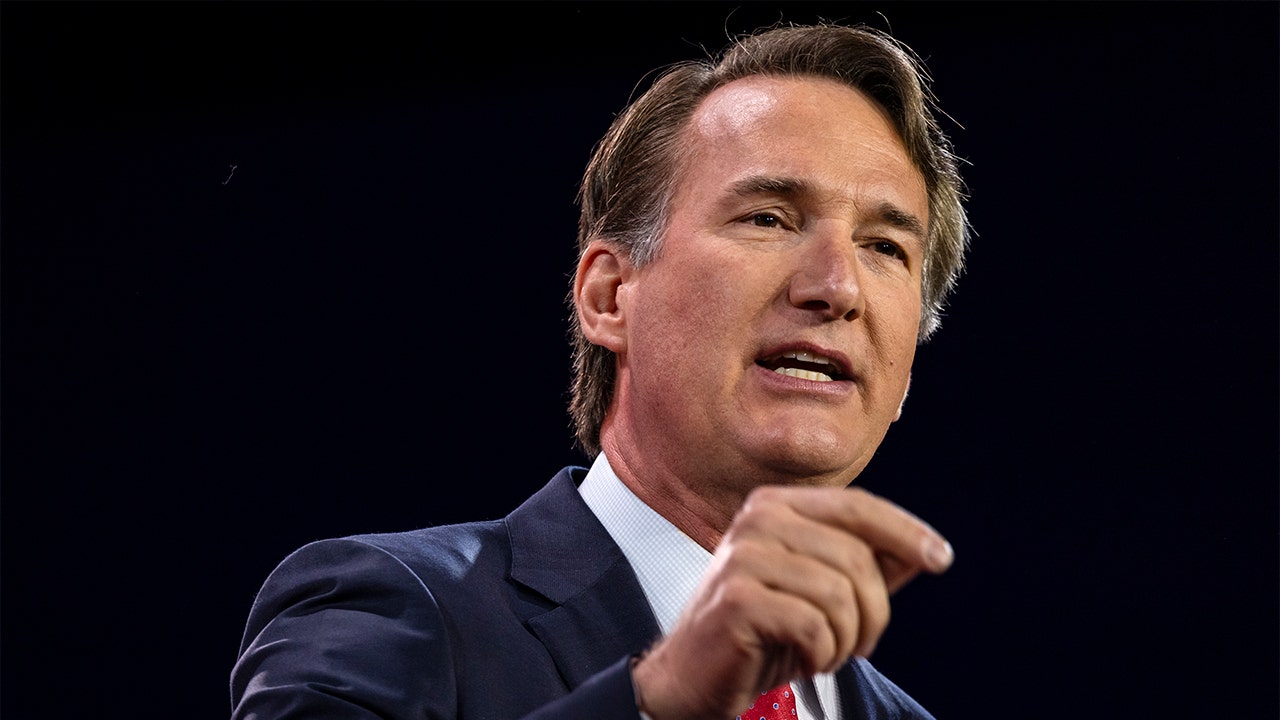
 Politics1 week ago
Politics1 week agoYoungkin takes victory lap against 'losing states' as Virginia marks $1B surplus: 'The playbook works'
-
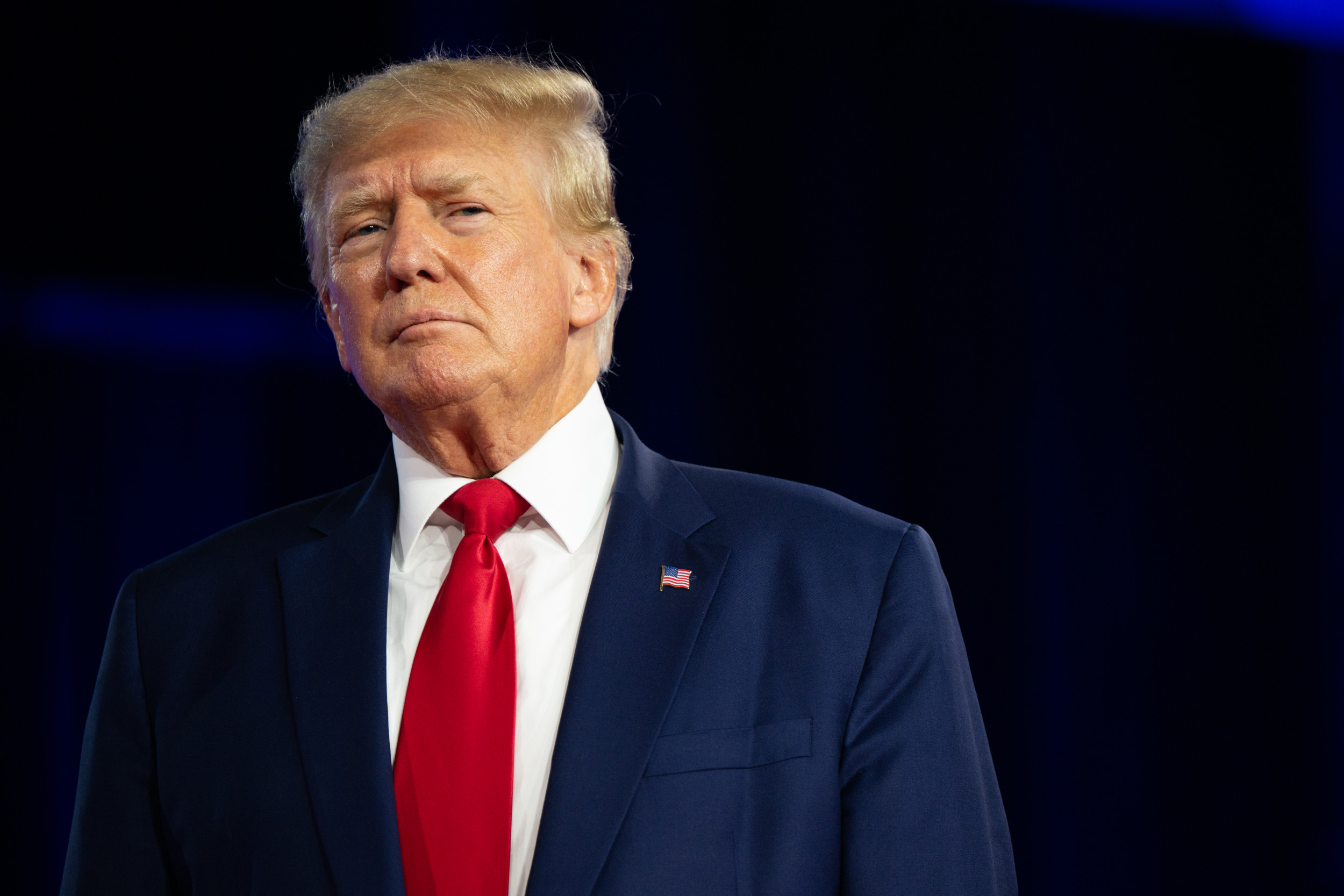
 News1 week ago
News1 week agoOver 100 of Donald Trump’s companies make no money: Financial disclosures
-
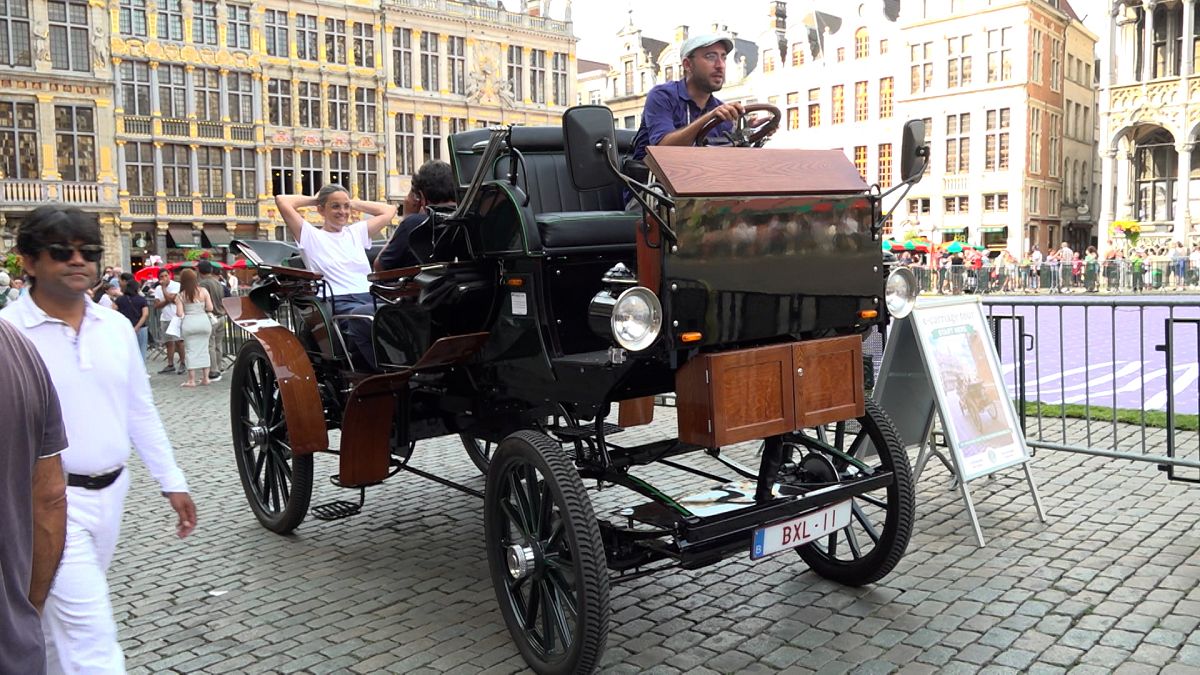
 World1 week ago
World1 week agoBrussels switches from horse-drawn carriages to electric ones
-

 News6 days ago
News6 days agoVideo: Biden Delivers Keynote on First Night of D.N.C.
-

 Politics1 week ago
Politics1 week agoPolitical parallels between 1968 and 2024 as the Democrats return to Chicago
-
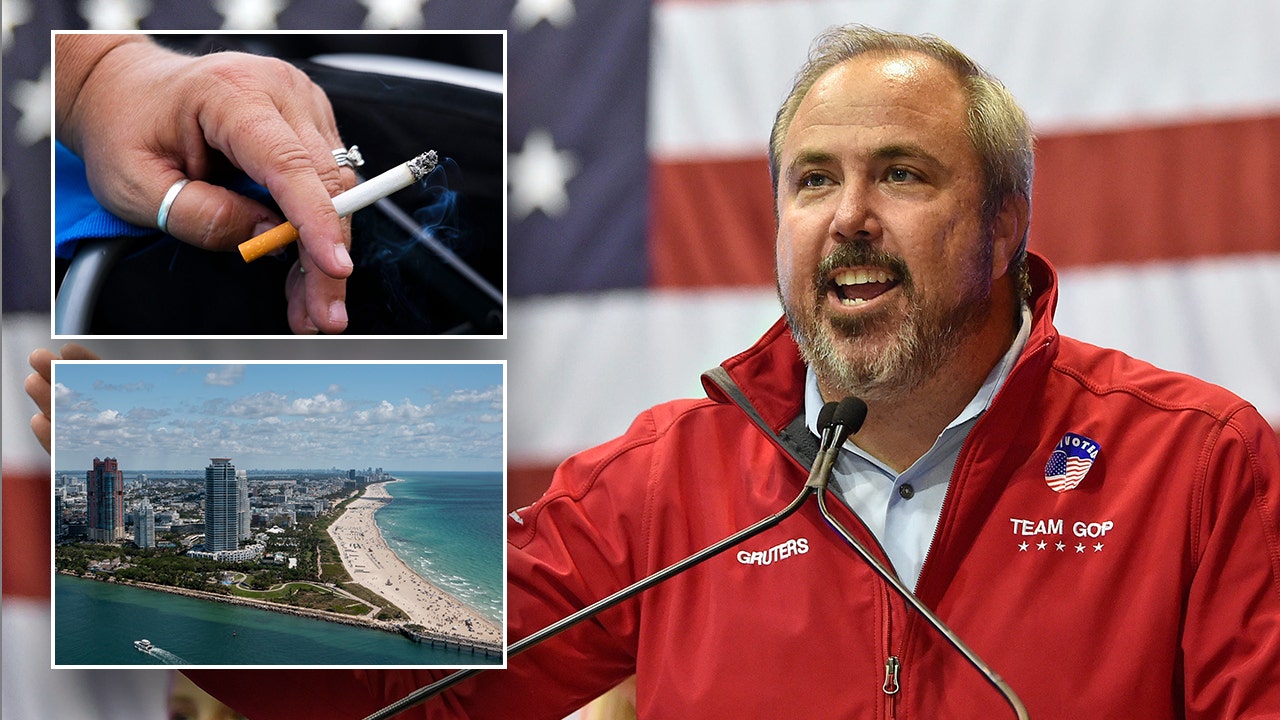
 Politics1 week ago
Politics1 week agoFlorida GOP lawmaker wants to ban smoking on streets, but supports legalizing marijuana










